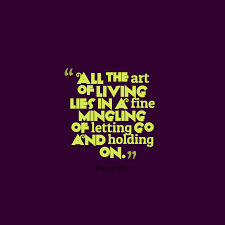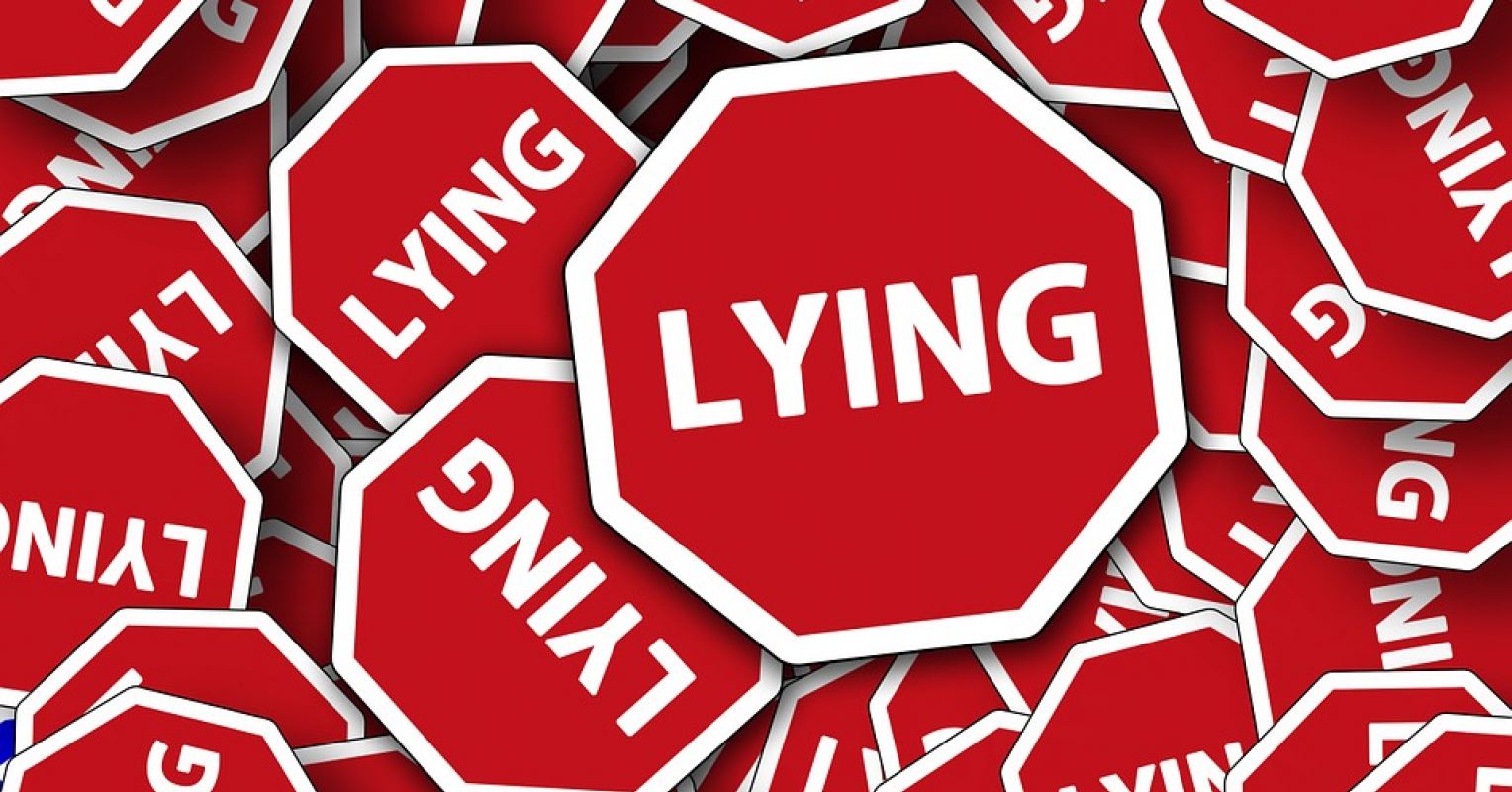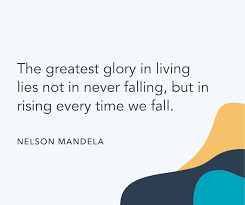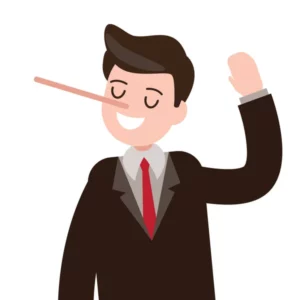We all know people who seem to have it all together, put on a brave face, and never let anyone see them sweat. We also know people who are always negative, constantly putting themselves and everyone else down. Neither of these types of people is living in reality. They are both living lies.
Contents
Understanding Self-deception

Self-deception is a psychological term that means to deliberately mislead yourself or others. Either by telling lies or even by not knowing the truth. It is an act of deception and lying to oneself. Self-deceit can also mean believing things about oneself that are simply untrue, usually to make one feel better about themselves and their situation.
How Often People Lie To Themselves
Nearly everyone engages in small deceptions at one point or another. These may be deceiving oneself about being late for work or saying something nice when we don’t mean it. We lie to ourselves and others continually.
In what is known as “social desirability bias,” people will often say things that make them seem better than they are. In this way, our self-deception can help others in social situations.
Why People Fall Into This Trap
People fall into the trap of self-deception for several reasons:
To cope with the pain of reality. For example, a man whose wife died might pretend to himself that she is still alive and well so that he can avoid going through the painful process of grieving her loss. A child who has lost their parents may not understand what has happened. And attempt to make sense of their new world by believing they are still alive.
To make themselves feel better. A man who has been out of work for months may tell himself that he is just taking a break from his career and will start working again soon. Even though the reality is that he can’t even get an interview let alone a job offer.
To avoid facing truths they don’t want to accept. A man who has been in a relationship with another man for years may not face his sexual orientation because of the stigma attached to being gay. He may believe that he is straight and simply has a best friend, rather than accepting the fact that he is in love with another man.
As you can see from the examples above, self-deception can be used to avoid painful truths, make ourselves feel better about a bad situation, or simply to deceive others.
Self-deception as Defense Mechanism
Self-deception can be seen as a defense mechanism. This is a psychological term that describes how people protect themselves from emotional pain. Defense mechanisms are unconscious processes that we use to deal with difficult situations or feelings.
There are many different types of defense mechanisms, but some of the most common ones are denial, repression, and displacement.
- Denial is the refusal to accept that something has happened or is true.
- Repression is the pushing of unpleasant thoughts and feelings into the unconscious mind.
- And displacement is the transferring of unwanted emotions onto someone or something else.
All of these defense mechanisms can be used as a way of avoiding painful truths.
- By denying that something has happened, we don’t have to deal with the pain it causes.
- By repressing unpleasant thoughts and feelings, we can avoid having to face them.
- And by displacing our emotions onto someone or something else, we can lessen the impact they have on us.
Living The Lie

People live lies in different ways and to different degrees. Some people are completely consumed by their lies, while others only use them occasionally.
Living lies in relationships
There are many different types of self-deception when it comes to relationships. For example, if someone is dating someone they don’t really like, they may tell themselves that they do like them. To avoid hurting the other person’s feelings.
Or if someone is in a bad relationship, they may stay in it because they are afraid of being alone.
In both of these cases, the people involved are not being honest with themselves about their feelings for the other person involved.
Living lies in sexual identity
Many people struggle with their sexual identities and have trouble accepting who they are. This can lead to them lying to others or even themselves, pretending that they are something they are not just so that others will accept them.
A classic example of this is a man who pretends to be straight. When in fact, he may have feelings for other men but cannot accept that about himself.
Living lie in career
Many people live the lie when it comes to their careers. For instance, some people never follow their dreams and instead do something they hate because it is safe and secure.
Others may have a career that they are passionate about but are too afraid to go for it because they are worried about failing.
In both of these cases, people are not being honest with themselves about what they want from their lives.
Living lies in money
Many people live the lie when it comes to money. For instance, some people don’t have enough but keep spending as if they do.
Others may have plenty of cash but still spend every last dollar because they believe that more is always better than less – even though this isn’t necessarily true!
In both of these cases, people are not being honest with themselves about their financial situation.
Dangers of Living Lie

There are many dangers associated with living the lie.
A lot of emotional pain: The biggest danger is that it can lead to a lot of emotional pain and suffering. When we aren’t honest with ourselves, we can’t truly be happy or content.
Cause us to make bad decisions: If we are pretending to be something we are not, then we may end up pursuing careers that don’t suit us or relationships with people who aren’t right for us.
Cause a lot of problems: The final danger is that it can cause problems between ourselves and others. If someone lives their life based on lies, then there will always be someone out there who feels betrayed by their actions.
NOTE: This can lead to heartache and disappointment in the long run which nobody wants!
When It’s Okay and Not
There are some situations where it is okay to live the lie and others where it is not.
It is okay to live the lie if you are:
- In a bad situation and don’t know how to get out of it.
- Your life depends on it.
It is not okay to live the lie if you are:
- Pursuing a career that doesn’t suit you.
- Pretending to be someone you are not.
- You know what you want and are just afraid to go for it.
- Lying to yourself about your feelings for someone else.
Is It Possible to Be Happy
The problem with living the lie is that you are always afraid of being found out. You may feel like you need to hide your true self from others because they will not accept you. This can lead to a lot of stress and anxiety, which can harm your mental health.
You may also feel like you are living a double life, which is very exhausting. It can be difficult to keep track of all the lies you have told and all the secrets you are keeping.
And when you start telling the truth, it can feel like a huge relief. But at the same time, it may be very painful to face all of your mistakes and deception.
So is it possible to live happily ever after?
The answer is yes! With some effort on your part, you can learn how to stop lying and start living in truth. This will require some work, but it is worth it in the end. You will feel better about yourself, and other people will respect you more.
Identifying You’re Living Lies

You can tell if someone is lying by looking at their body language or listening to what they say. But sometimes we don’t realize when we are lying to ourselves. There are many ways to identify if you’re living a lie and how to stop it. Here are some tips that may help:
Be aware of your thoughts and feelings: Start by being aware of your thoughts and feelings. If something feels off or doesn’t make sense, then it may be because you are not being honest with yourself.
Journal: Another way to become more aware of your thoughts and feelings is to start journaling. This will allow you to document your thoughts and feelings as they come up, so you can go back later on in the day or week to see how your mind is working.
Therapy: A third way of identifying if you’re living a lie is to get therapy. If this isn’t possible right now due to coronavirus restrictions (or lack of time), many online services can help you work through your issues with a therapist via video chat.
Take action: Finally, it’s time to take some action! Once you have identified the areas in your life where you need to make changes, start working on them. Gradually, you will learn how to stop lying and start living in truth.
NOTE: Talking to somebody who is not involved in the situation may also be helpful. Because they might have an unbiased opinion on what’s going on.
Coming To Terms With Reality
Once you have identified that you are living a lie, it is time to come to terms with reality. This may be a difficult process, but it is necessary to move on.
Here are some tips for coming to terms with reality:
Acknowledge the lies: The first step is acknowledging that you have been lying to yourself. This can be a difficult thing to admit, but it is necessary if you want any chance of moving forward with your life.
Determine why they occurred: Once you have acknowledged the lies, then it’s important to determine why they happened in the first place. Ask yourself questions like:
- “How did I get here?
- What caused me to lie about this situation or person?”
It could be a variety of reasons, but take some time and think through them.
Accept responsibility: The third step is accepting responsibility for your actions. You need to take ownership of what has happened and acknowledge that this behavior isn’t okay anymore!
Learn from your mistakes: The next step is learning from those mistakes so they don’t happen again in the future. If you notice patterns emerging when it comes to how you lie, then make sure you take note of them and try not to do those things anymore.
Break The Cycle Of Deceit
Once you’ve acknowledged the lies and determined why they happened, it is time to break the cycle of deceit. Your relationship may feel like it has been built on a foundation made up entirely of lies, but it can be saved if you are willing to work hard enough at fixing things.
Here are some ways that you can break the cycle of deceit:
- Be honest with yourself and others about everything from now on. If someone asks for your opinion on something, give them an honest answer rather than what they want to hear.
- Be more aware of your emotions and how you handle them in front of other people. If you find yourself getting angry or frustrated, get some space from the situation before responding out of emotion instead of logic (which can lead to lying).
- Avoid situations that may tempt you into telling lies again—for example, if there is alcohol involved, then steer clear.
- Make amends with the people you have lied to in the past. This may not be easy, but it is necessary if you want to move on with your life.
How To Be More Honest In Future
Now that you’ve broken the cycle of deceit and are ready to move on with your life, it is time to start thinking about how you can be more honest in future relationships.
Here are some ways that you can be more honest in future relationships:
- Make sure any new relationship has a solid foundation built upon honesty and trust.
- Don’t be afraid to express your true feelings—even if they may not always be what the other person wants to hear.
- Avoid situations that might tempt you into lying again (for example, drinking too much alcohol).
- Be truthful about your past mistakes and be willing to accept the consequences.
Self-Help Tips
Living the lie can be draining, but there are some things you can do to make it easier. Here are a few self-help tips that may help you cope with living the lie and move on with your life:
Practice self-care. This means taking time for yourself and doing things that make you feel good about who are as a person. It could be reading a book or going on vacation, but whatever it is, do something just because it makes YOU happy! You deserve to be happy too!
Surround yourself with people who support you. This can be a difficult thing to do if the people who you thought were your friends are the ones who encouraged you to lie in the first place, but it is important to find people who will love and support you no matter what.
Talk openly about how you’re feeling with someone you trust. This could be a friend, family member, or therapist. It can be helpful to talk about the lies and how they’re making you feel to gain a better understanding of them.
NOTE: If you find that it is too difficult, or you need more guidance than what is offered in this article, then seek professional help.
Talking To Professional
If you find that you are struggling to cope with living the lie, there is no shame in seeking professional help. A therapist can provide you with the tools and guidance you need to deal with this issue and move on with your life.
Therapies
There are a few different therapies that may help live the lie. Some of these therapies include:
Cognitive Behavioral Therapy (CBT): This type of therapy focuses on how your thoughts and beliefs affect your emotions and behavior. It can help you identify the lies you tell yourself, as well as the thoughts and emotions that are associated with them.
Psychodynamic Therapy: This type of therapy examines your past and how it has shaped your current thoughts, feelings, and behaviors. It can help you understand why you feel the need to lie and explore any underlying issues.
Dialectical Behavior Therapy (DBT): This type of therapy helps you learn how to regulate your emotions. It can be helpful if you find yourself getting angry or frustrated when confronted with the truth about a lie you told to mask these feelings from others around them.
Case Study
To provide a more concrete example of how living a lie can affect someone, I will use the case study of Sarah*.
Sarah is a 35-year-old woman who was raised in a household where lying was considered normal. Her parents would often lie to each other and their children about things such as their income or their relationships with other people.
As a result of growing up with this, Sarah learned to lie at an early age. She would often exaggerate the truth to make herself look better than she was or hide her mistakes from others. Because she didn’t want them judging her for being wrong about something important like money management (which is a common concern for many people).
Sarah’s lying became so habitual that she started to believe her lies. This led her to live a double life, where she would act one way around certain people and another way around others. She was always worried about getting caught, which caused her a lot of anxiety and stress.
Sarah felt like she couldn’t trust anyone because they could be lying too. This made her feel isolated from others, which caused her depression and hopelessness about the future. Sarah began to self-harm to cope with these feelings of despair as well as guilt for what she had done wrong over time.
Her Course of Action
After many years of struggling with this, Sarah decided it was time to make a change. She started seeing a therapist who helped her learn how to trust herself and others again by setting boundaries where she felt safe enough, to be honest about what she wanted or needed without worrying if they were going too far.
Sarah had tried therapy before but never lasted longer than a few sessions. This time was different because she found a therapist who understood her and could help her work through the issues that were causing her to lie in the first place.
Hearing From Experts
Here is what some experts have to say about living the lie:
“If you are lying, then there is a good chance that others are too. It can be hard to accept this reality and not feel like everyone else around us has their life together. However, we all struggle with issues at times; no one person or situation is perfect.” – Rachelle LaFountain, LMFT
“The longer you live a lie, the more difficult it becomes to maintain. Eventually, the truth will come out and when it does, the fallout can be disastrous. It is much better to face up to your mistakes and deal with the consequences head-on than try and sweep them under the rug.” – Mark Raby, LMFT
Movies And Books
Here are some books and movies about living a lie:
MOVIES
The Talented Mr. Ripley: The Talented Mr. Ripley by Patricia Highsmith, tells the story of Tom Ripley as he tries to gain acceptance among wealthy people in New York City by pretending to be someone else entirely. His lies start small but eventually grow out of control when his fake identity becomes more than he can handle.
The Invention of Lying: The Invention of Lying (2009) is a film written and directed by Ricky Gervais, based on the premise that there are no lies or deceit in this world; everyone speaks only what they believe to be true. The plot follows Mark Bellison, played by Gervais himself who goes from being a lowly writer to the creator of the first lie after he accidentally tells his pregnant girlfriend that she’s going to have a boy.
BOOKS
Lying by Sam Harris: Lying by Sam Harris is a non-fiction book that takes a deeper look at the act of lying and its effects on both the liar and their victim. Harris argues that lying is not only harmful to the relationship between the two people involved, but also to society as a whole.
Lying to Be Perfect: Lying to Be Perfect by Tosca Reno is a self-help book that encourages people to be themselves, quirks, and all. Reno discusses the importance of being truthful with oneself to live a happy and fulfilling life.
Conclusion
Lying is never a good thing, but it can be especially harmful when it comes to living a lie. A person who is constantly lying to themselves and others may find that they have difficulty forming meaningful relationships with people in their life because of trust issues or other problems related to honesty.
Everyone involved (including those around them) needs to make sure not only do they know what the truth is but also everyone else involved does as well.
People who have trouble living the truth might need some help from a therapist or other professional counselor before they can move forward and live their lives without having to constantly lie about things big or small.
A Word From Therapy Mantra
Your mental health — Your psychological, emotional, and social well-being — has an impact on every aspect of your life. Positive mental health essentially allows you to effectively deal with life’s everyday challenges.
At TherapyMantra, we have a team of therapists who provide affordable online therapy to assist you with issues such as depression, anxiety, stress, workplace Issues, addiction, relationship, OCD, LGBTQ, and PTSD. You can book a free therapy or download our free Android or iOS app.


